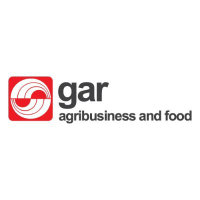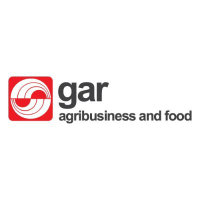
Golden Agri-Resources Ltd
SGX:E5H


| US |

|
Johnson & Johnson
NYSE:JNJ
|
Pharmaceuticals
|
| US |

|
Berkshire Hathaway Inc
NYSE:BRK.A
|
Financial Services
|
| US |

|
Bank of America Corp
NYSE:BAC
|
Banking
|
| US |

|
Mastercard Inc
NYSE:MA
|
Technology
|
| US |

|
UnitedHealth Group Inc
NYSE:UNH
|
Health Care
|
| US |

|
Exxon Mobil Corp
NYSE:XOM
|
Energy
|
| US |

|
Pfizer Inc
NYSE:PFE
|
Pharmaceuticals
|
| US |

|
Palantir Technologies Inc
NYSE:PLTR
|
Technology
|
| US |

|
Nike Inc
NYSE:NKE
|
Textiles, Apparel & Luxury Goods
|
| US |

|
Visa Inc
NYSE:V
|
Technology
|
| CN |

|
Alibaba Group Holding Ltd
NYSE:BABA
|
Retail
|
| US |

|
3M Co
NYSE:MMM
|
Industrial Conglomerates
|
| US |

|
JPMorgan Chase & Co
NYSE:JPM
|
Banking
|
| US |

|
Coca-Cola Co
NYSE:KO
|
Beverages
|
| US |

|
Walmart Inc
NYSE:WMT
|
Retail
|
| US |

|
Verizon Communications Inc
NYSE:VZ
|
Telecommunication
|
Utilize notes to systematically review your investment decisions. By reflecting on past outcomes, you can discern effective strategies and identify those that underperformed. This continuous feedback loop enables you to adapt and refine your approach, optimizing for future success.
Each note serves as a learning point, offering insights into your decision-making processes. Over time, you'll accumulate a personalized database of knowledge, enhancing your ability to make informed decisions quickly and effectively.
With a comprehensive record of your investment history at your fingertips, you can compare current opportunities against past experiences. This not only bolsters your confidence but also ensures that each decision is grounded in a well-documented rationale.
Do you really want to delete this note?
This action cannot be undone.

| 52 Week Range |
0.26
0.295
|
| Price Target |
|
We'll email you a reminder when the closing price reaches SGD.
Choose the stock you wish to monitor with a price alert.

|
Johnson & Johnson
NYSE:JNJ
|
US |

|
Berkshire Hathaway Inc
NYSE:BRK.A
|
US |

|
Bank of America Corp
NYSE:BAC
|
US |

|
Mastercard Inc
NYSE:MA
|
US |

|
UnitedHealth Group Inc
NYSE:UNH
|
US |

|
Exxon Mobil Corp
NYSE:XOM
|
US |

|
Pfizer Inc
NYSE:PFE
|
US |

|
Palantir Technologies Inc
NYSE:PLTR
|
US |

|
Nike Inc
NYSE:NKE
|
US |

|
Visa Inc
NYSE:V
|
US |

|
Alibaba Group Holding Ltd
NYSE:BABA
|
CN |

|
3M Co
NYSE:MMM
|
US |

|
JPMorgan Chase & Co
NYSE:JPM
|
US |

|
Coca-Cola Co
NYSE:KO
|
US |

|
Walmart Inc
NYSE:WMT
|
US |

|
Verizon Communications Inc
NYSE:VZ
|
US |
This alert will be permanently deleted.
 Golden Agri-Resources Ltd
Golden Agri-Resources Ltd






 You don't have any saved screeners yet
You don't have any saved screeners yet

Thank you for joining the First Quarter Results Presentation of Golden Agri.
We were able to show, again, the resilience of our business model in what was generally a challenging first quarter, because despite the decline in CPO price, we were able to maintain our EBITDA at about USD 120 million.
The upstream performance was impacted by the weak CPO price in combination with the lower production output, due to the yearly seasonality, where our performance was in line with the industry. However, on the downstream, we saw a increased contribution with higher margin and so that reflects the strengthening of our integrated business model and relationship with our end users in the destination markets.
Going forward, we will continue to focus on technological innovation and enhancement of the integrated operations to optimize value to our shareholders.
And in terms of outlook, we do believe the CPO price will be supported by the Indonesian Bio-diesel policy, which will continue to be a catalyst for the industry as we'll discuss in a bit more detail further down.
So we go through the first slides on the financial -- consolidated financial performance and here, we can see the steady EBITDA as I mentioned contributed by the downstream, while the upstream was weaker.
Quarter-on-quarter we saw the EBITDA go down though, primarily due to the lower production because of seasonality, as I mentioned, as well as a accounting adjustment that we enjoyed in the fourth quarter of last year, which was the fair value gain of financial assets.
The balance sheet remained stable, where we saw the total debt at about USD 3 billion, maintaining the robust balance sheet of Golden Agri, helping us through any challenging times we may face.
Then we move to the segmental results, starting with the upstream. And here, you can see that the fruit production came down by 22% compared to fourth quarter. But year-on-year, we actually saw a slight increase of 2%. And total palm products, output increased by 3% compared to first quarter 2018.
Then the next slide is about our plantation area, which grew slightly. We saw the mature area increasing to 475,000 hectares and total planted area slightly over 500,000 hectares. The growth is primarily coming from our replanting program, where we replanted 2,200 hectares in the first quarter with a full year target of 15,000 hectares. And these replantations are taking place with higher yielding new-generation seeds that will allow us to continue growing our production even if our total plant area would not grow.
And the other segment is the palm, laurics and others. And despite the CPO price volatility in the first quarter, we saw here a nice margin improvement from 1.6% in the first quarter of last year to 3.7% for the first quarter of this year.
The fourth quarter 2018 EBITDA was exceptionally high, again, because of the fair gain on financial assets adjustments.
Growth strategy and outlook. As I mentioned already, we will continue to focus on using technology to both improve our yields and lower our costs in the upstream. Projected CapEx is $150 million for the upstream. And then for the downstream, we're looking at another USD 100 million for this year, mostly to build the enhanced product portfolio as well as some of the logistics facilities for our distribution.
Outlook. So as I mentioned, we remain confident of the longer-term growth, supported by the growing global demands, not only for foods but also for the bio-diesel.
And the bio-diesel program in Indonesia is what I would like to discuss next, which is because the program has been very successful. First of all, we see the bio-diesel grow globally by 14% last year to 41 million metric tons and we expect another 9% increase this year.
Indonesia implemented the B20 program since September 2018, and that resulted in the bio-diesel consumption in Indonesia increase from 3.7 metric tons in 2017 to last year, it was 4 million metric tons. And that is expected to grow to 7.4 million by this year, so a major jump. And that is partly because we see the full implementation of B20 for the year, but we also expect the B30 program to start somewhere in the second half of this year. So I believe that will be a major support for the CPO price this year.
And that completes the presentation from my side, so Anita Neville, she will talk to us about the sustainability program.
Thanks Richard, good morning, everyone. So we continue in the first quarter of 2019 to focus on our traceability-to-plantation efforts as we get closer and closer to 2020 no deforestation deadlines. We're now at full traceability to plantation for around 60%, just over 60% of our palm supply chain. 50 third-party mills that we buy from have reported full traceability to plantation for their own operations and more than 150 are currently taking part in our traceability-to-plantation exercise.
This year, we are consolidating our efforts at looking at human rights and our supply chain together with a key customer, Nestlé, and experts, Verité, we are carrying out an assessment of our suppliers on labor and human rights issues. Five mills have been chosen for this assessment, which aims to determine the risks of noncompliance with regards to social and environmental policy as well as looking at how suppliers comply with Nestlé's own responsible sourcing standard and then provide concrete recommendations for remediation. This is the second of these kinds of investments that we've done with Nestlé to look at how we can improve labor practices within our palm supply chain. Thank you.
Thank you, Anita.